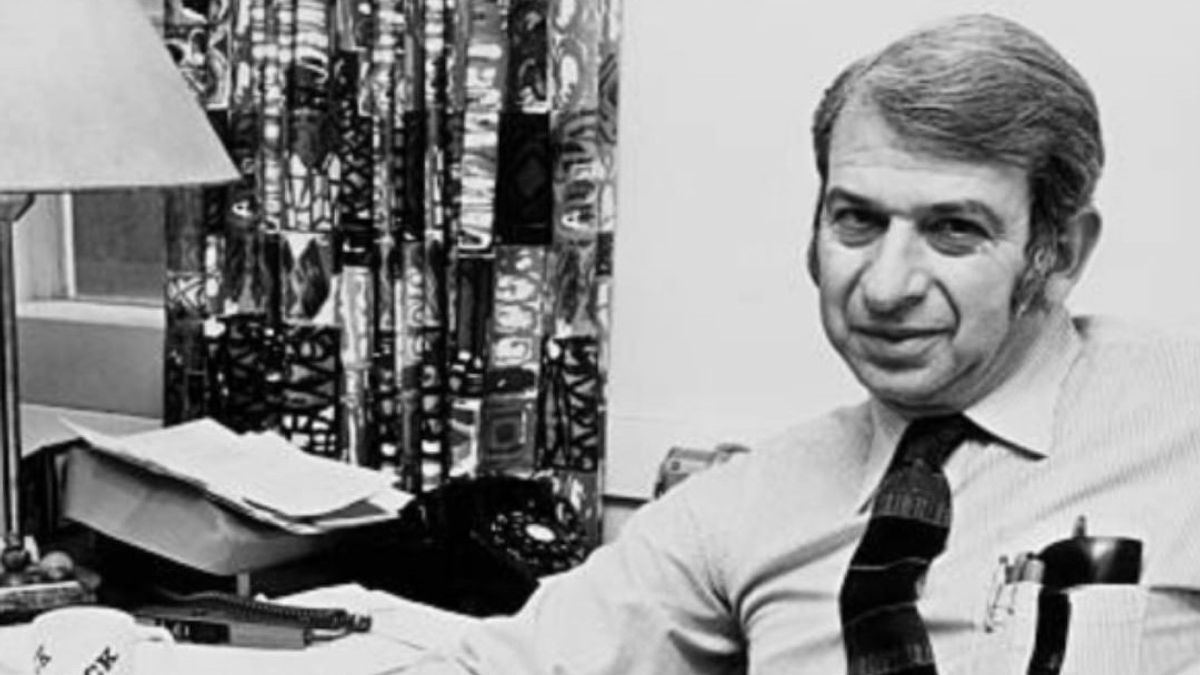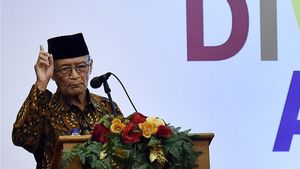JAKARTA - Lester Grinspoon, Professor of Psychiatry from Harvard who became a major proponent of legalizing marijuana after his research, died on June 25. He died at the age of 92 years. Grinspoon is a scientist who reveals that alcohol or tobacco is more poisonous and addictive than marijuana.
According to The New York Times, Grinspoon was originally a hard-line marijuana repellent. He believes that marijuana is a very dangerous type of drug.
One day Grinspoon once shared his anxiety when his fellow Harvard teacher Carl Sagan invited him to smoke pot. He kept warning his friends to stop consuming it.
Sagan didn't flinch. Instead, he told Grinspoon that marijuana was harmless. "'You will like it and be harmless.' I really am surprised, '" said Grinspoon.
Sagan's striking answer made Grinspoon challenged to find a study that strengthens the argument that marijuana is very dangerous. However, he found no compelling reason behind the federal government's 1937 designation of marijuana. Back then, authorities classified cannabis as an addictive plant.
Instead, Grinspoon found evidence that 19th-century doctors prescribed marijuana as a painkiller and to help people sleep. He concluded that marijuana, like alcohol, was relatively safe when regulated. He said, a dangerous thing is when marijuana users are criminalized.
After conducting a study, Grinspoon wrote an article entitled Marihuana Reconsidered which was published in 1971. In that article he argued: the greatest potential for social harm lies in youth and institutional reactive attitudes which are a direct impact of the current marijuana law.
"If we are to avoid this destruction becoming a national catastrophe in the next decade, we must move to make social use of cannabis legal," Grinspoon wrote.
Gait at NORMLGrinspoon seems to be someone who doesn't hold back when he voices what he believes. His position in favor of legalizing marijuana became clearer when he served on the advisory board of the National Organization for Marijuana Law Reform, or NORML. He became one of the mentors whose thoughts were used as an intellectual map towards legalization.
"At the start, it provided tremendous credibility," said former Executive Director of NORML, Allen Pierre. "When I joined in 1990, Lester had reached a high level in the cannabis reform movement. He was the most respected person," said Pierre.
Grinspoon is known as the scientific geek man. And it becomes his strength when he plunges into this movement. He is a professional. NORML was formed in 1970. The organization successfully led efforts to combat the criminalization of minor marijuana offenses in 11 countries during their first decade of operation.
Grinspoon's work to advocate for the decriminalization of marijuana users has begun to surface. His research in the field of cannabis has received appreciation from the former commissioner of the US Food and Drug Administration, James Goddard.
In his book The Best Dope On Pot So Far Goddard reviews Grinspoon's discoveries. And the name Grinspoon reached the ears of President Richard Nixon, who had begun a crackdown on drugs. Nixon tagged Grinspoon's name by calling him a "left radical."
Medicinal marijuana for the childGrinspoon grew stronger in his stance when marijuana helped treat his son, Danny. Her son was diagnosed with acute lymphocytic leukemia for four years.
At first Grinspoon rejected his wife's idea of suggesting that Danny try marijuana. But Danny's mother didn't care. He was determined to give Danny marijuana in the next chemotherapy treatment.
After smoking marijuana in the hospital parking lot, Danny was suddenly relieved of the anxiety he had previously felt before taking the drug.
"From then on, he used marijuana before every treatment, and we were all much more comfortable for the rest of his life," wrote Grinspoon in Marihuana: The Forbidden Medicine.
Lester Grinspoon was born on June 24, 1928 in Newton. His father, Simon, is a lawyer. His mother, Sally Grinspoon, worked as secretary to Isaac Asimov at Boston University School of Medicine.
After graduating from Harvard Medical School in 1955, he served in the US Public Health Service. He then joined the Massachusetts Mental Health Center in Boston as a psychiatrist for 40 years.
In addition, Grinspoon was a lecturer at the Harvard Medical School for 42 years before retiring in 2000. He realized Harvard's discomfort because he became a marijuana activist and refused to promote him from professor of psychiatry to full professor. But he didn't really care about it.
The English, Chinese, Japanese, Arabic, and French versions are automatically generated by the AI. So there may still be inaccuracies in translating, please always see Indonesian as our main language. (system supported by DigitalSiber.id)









